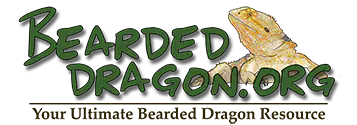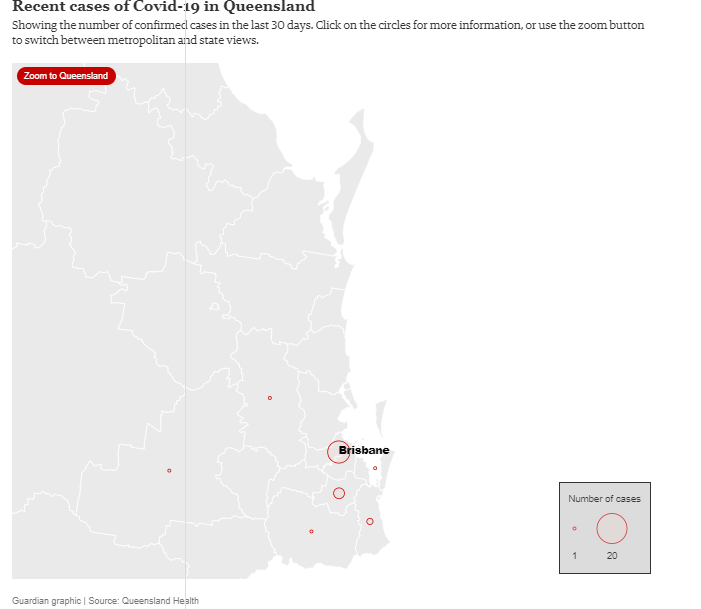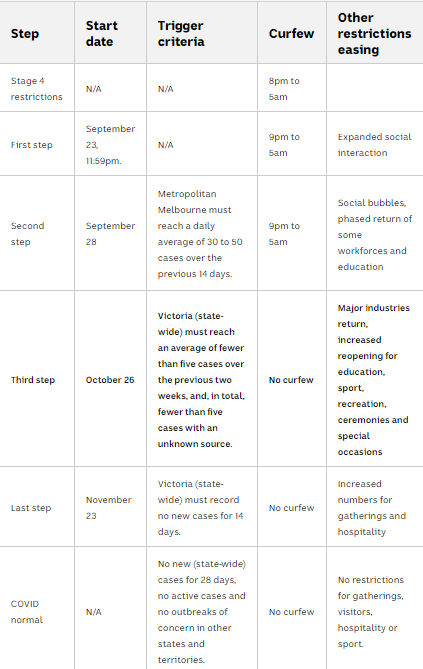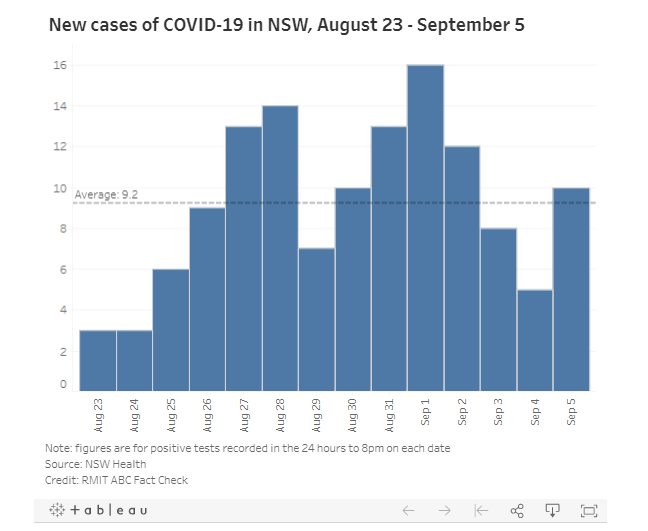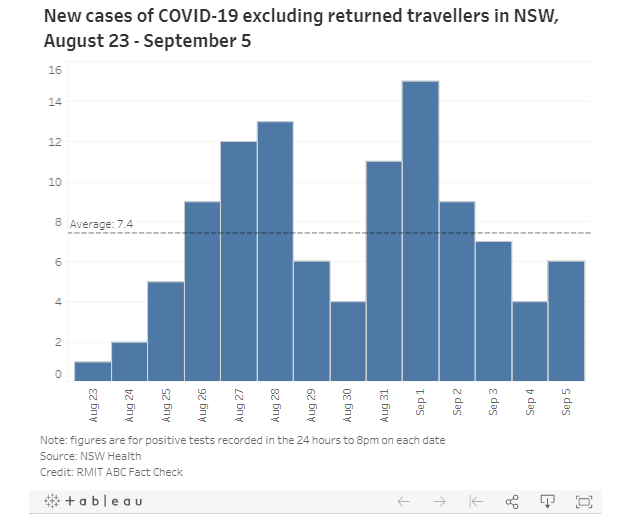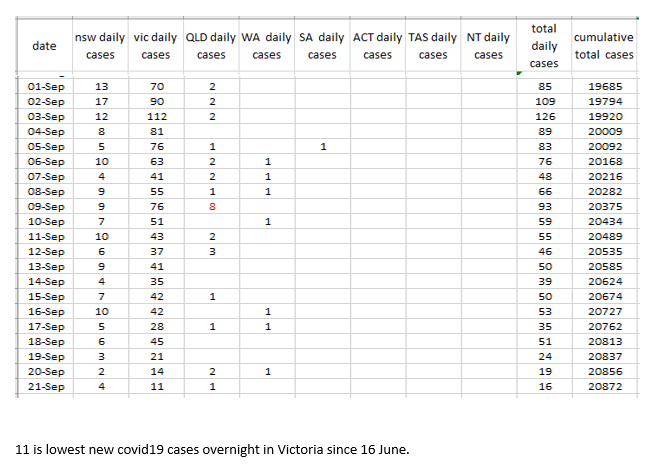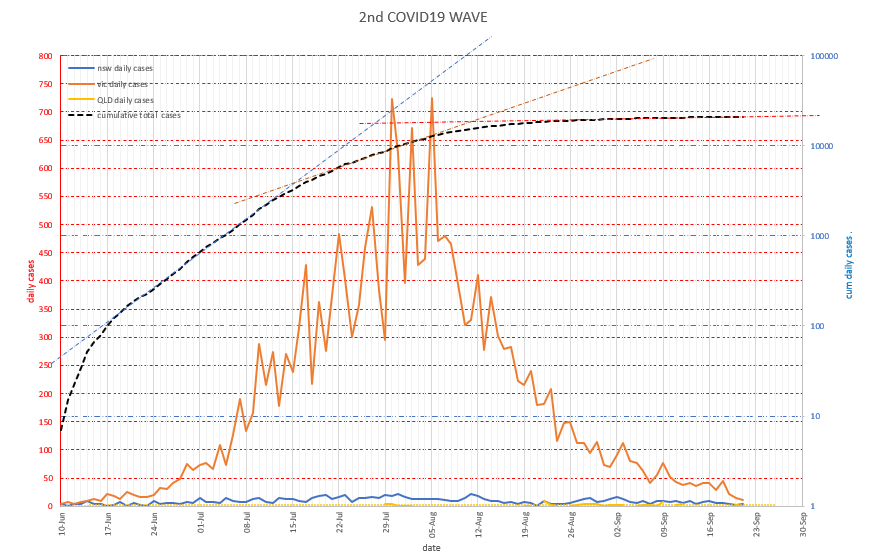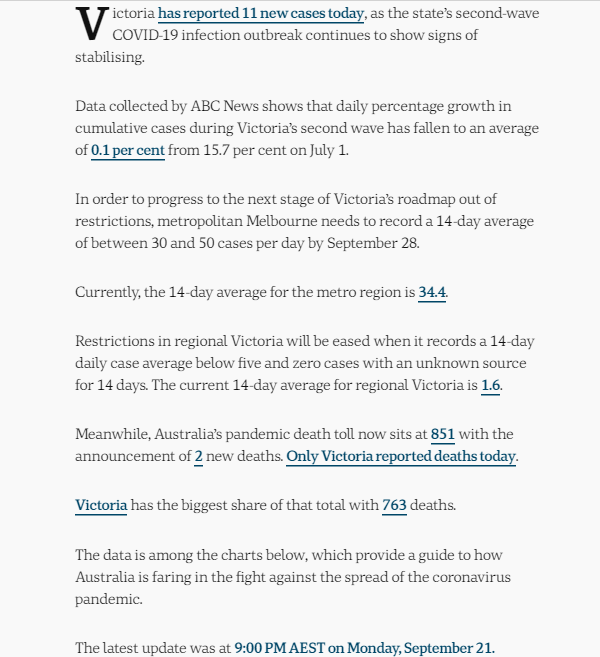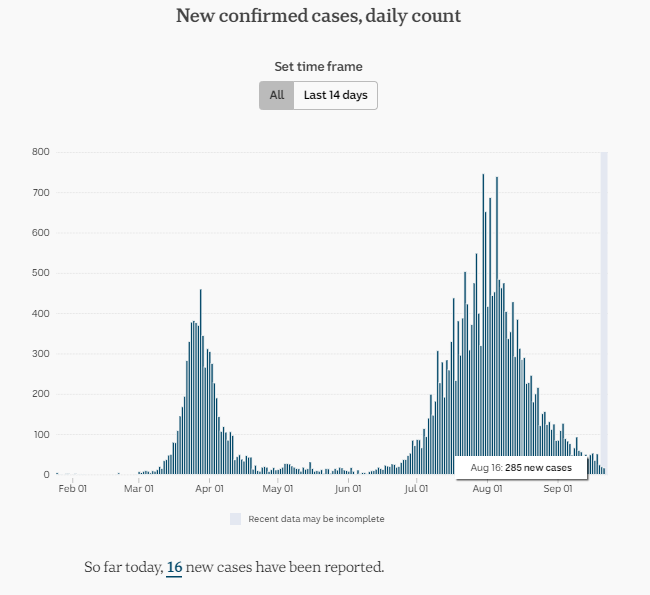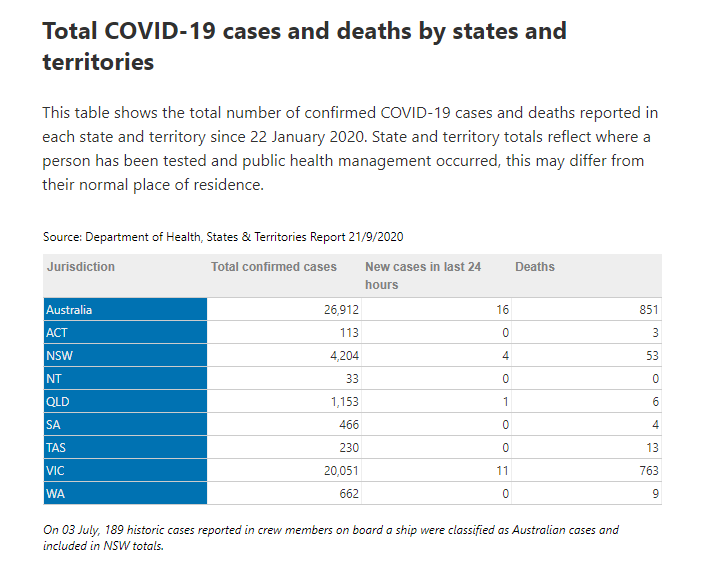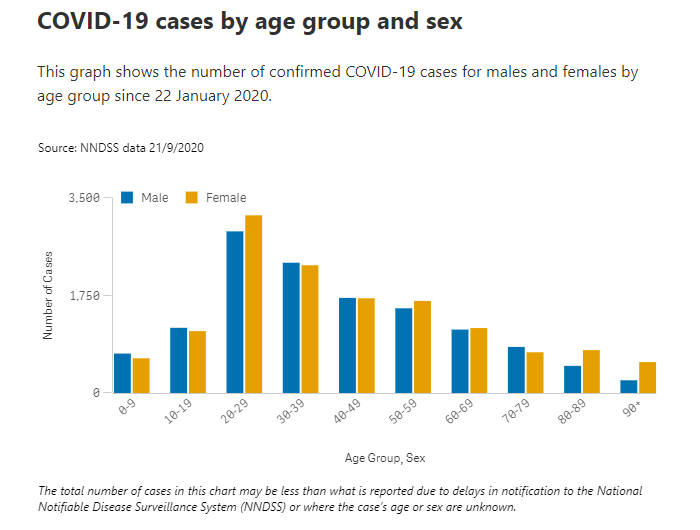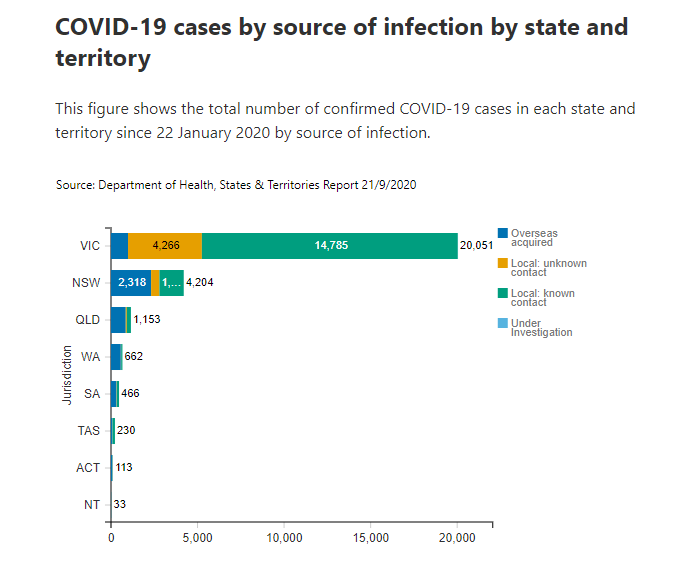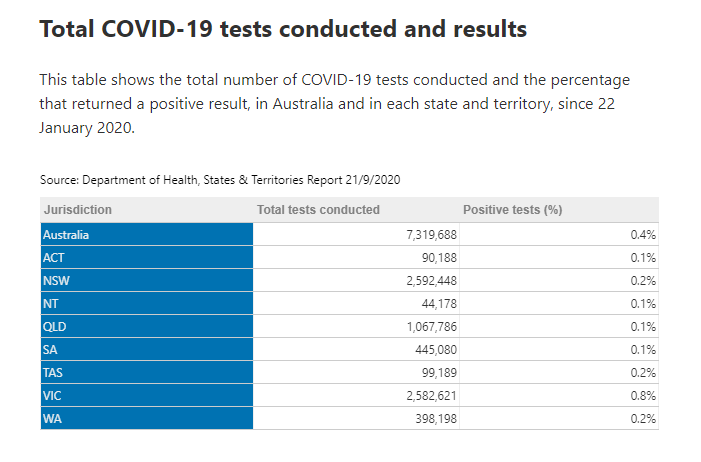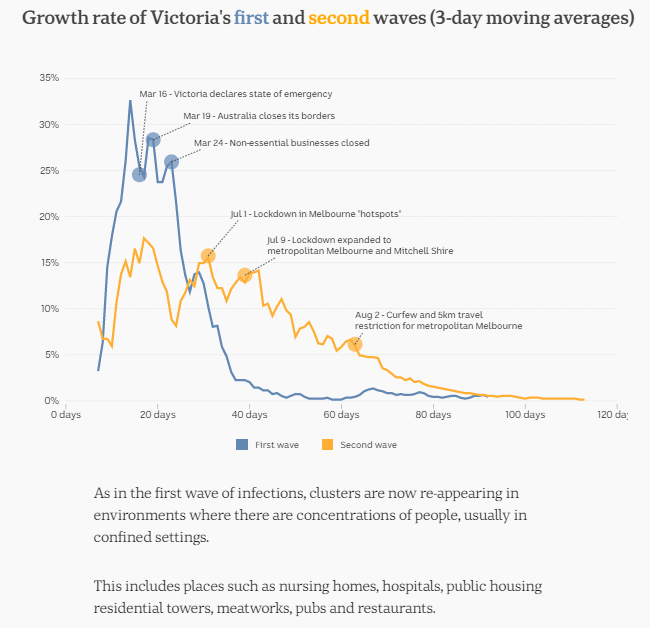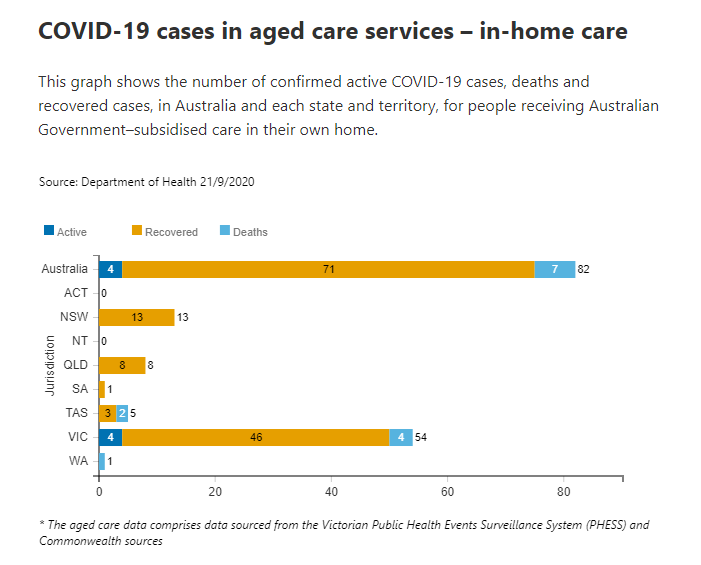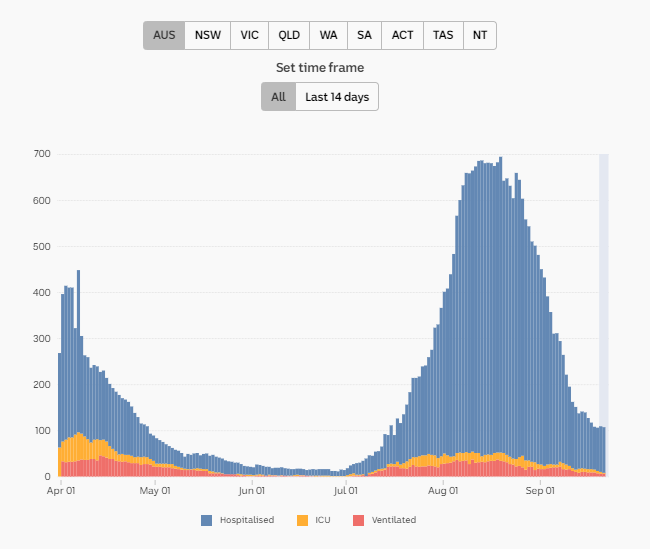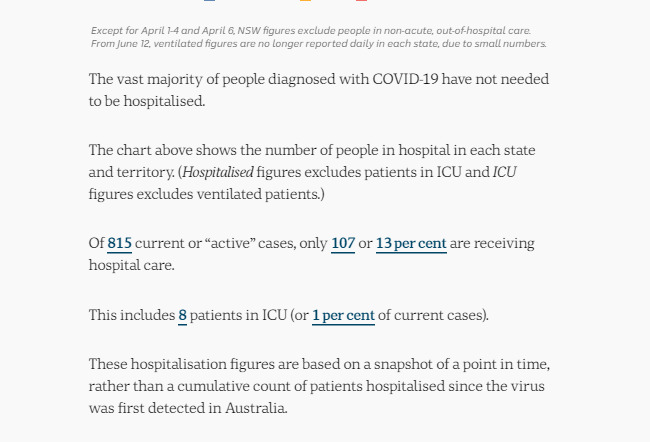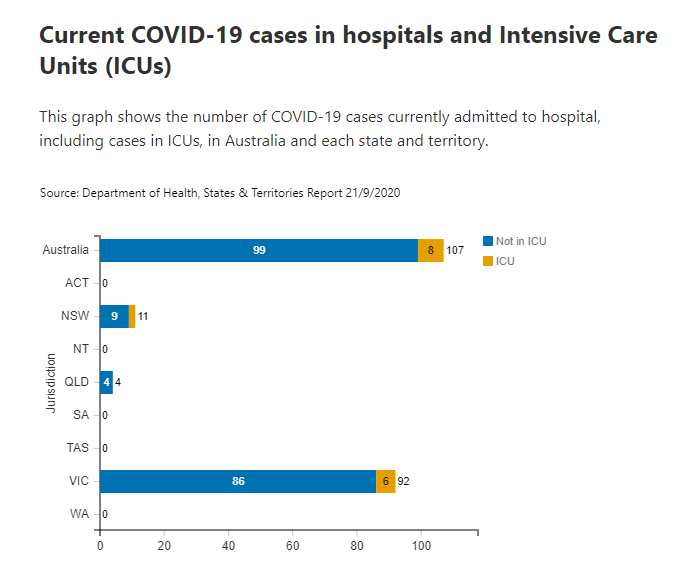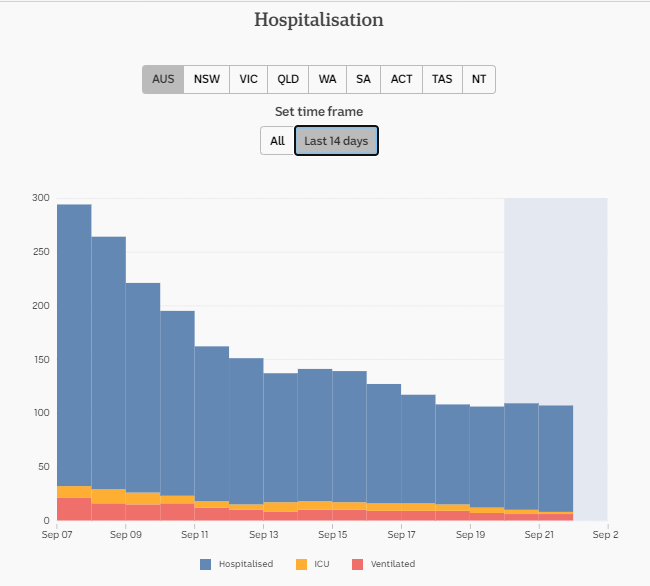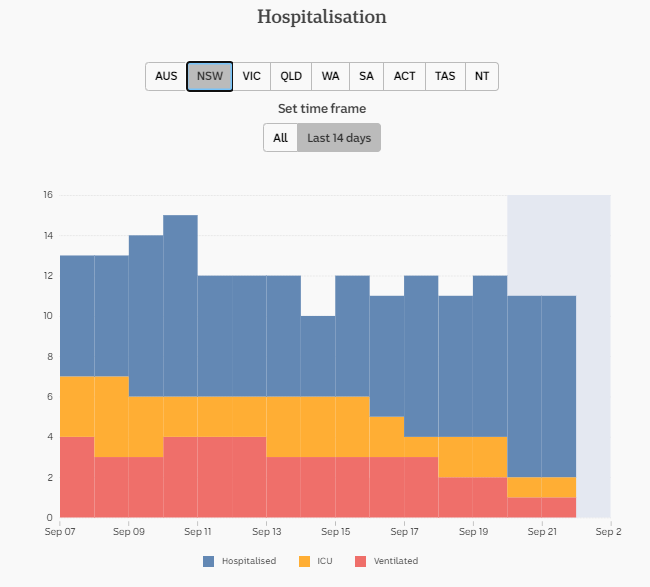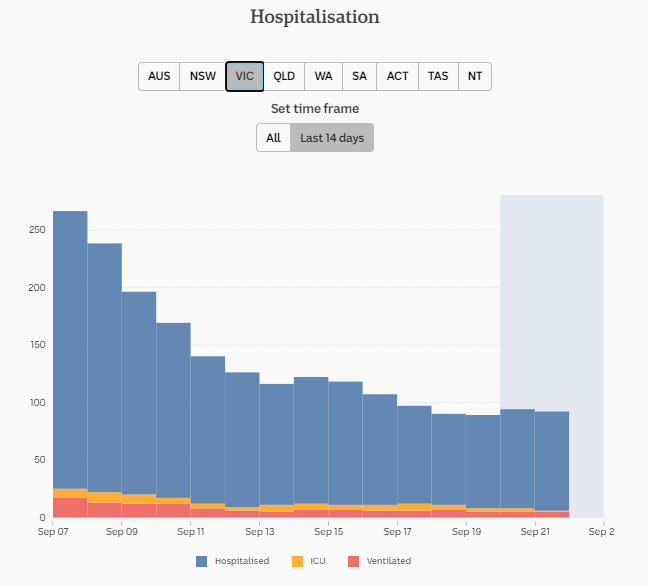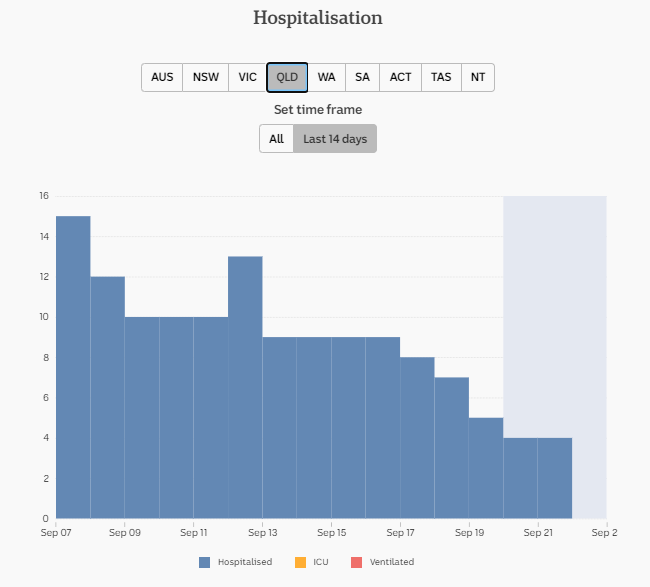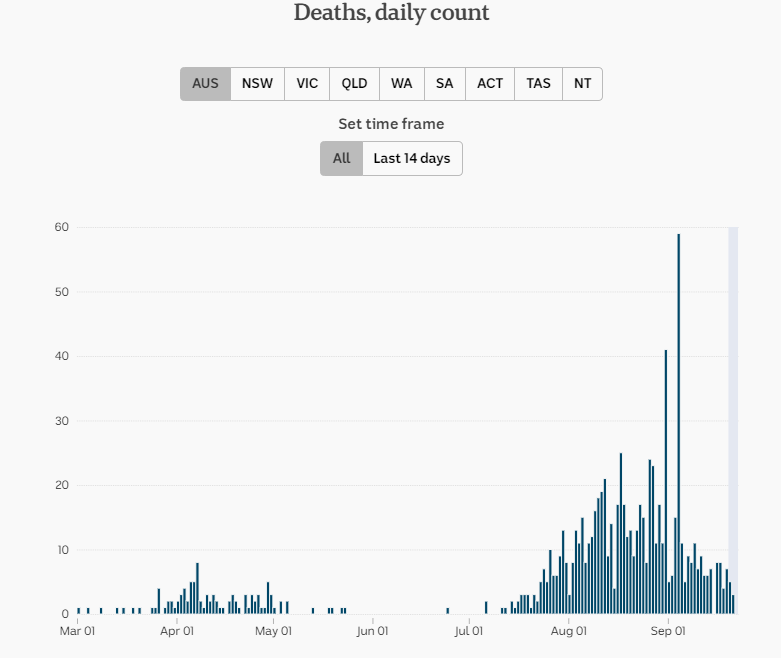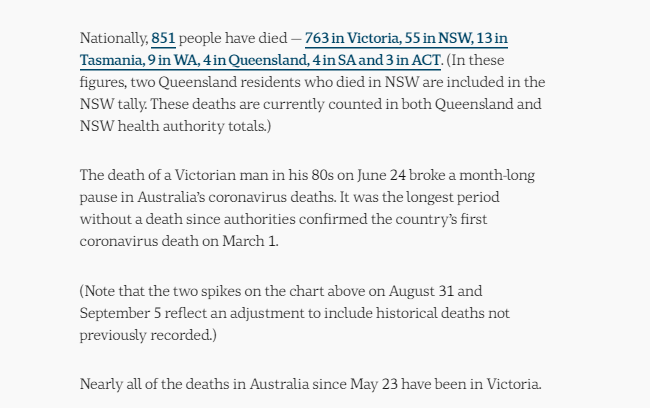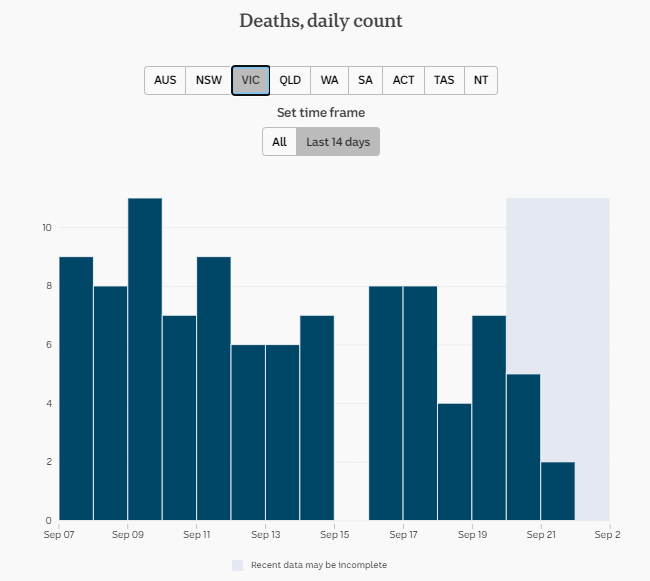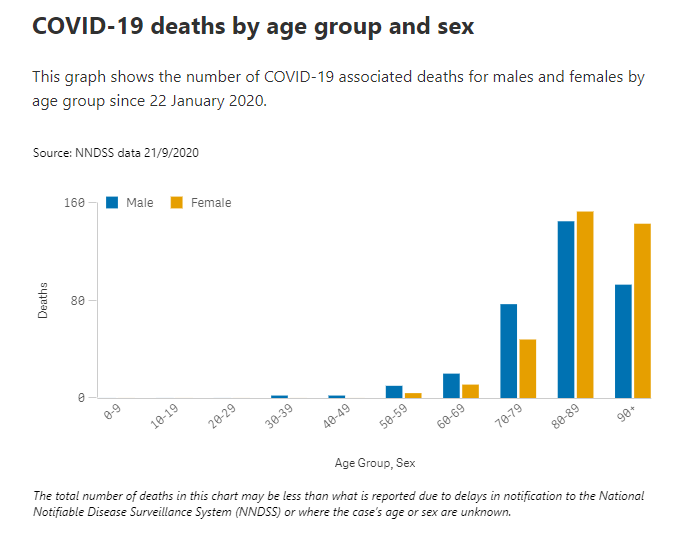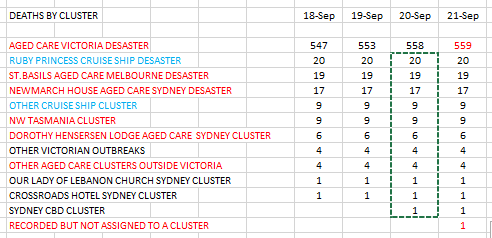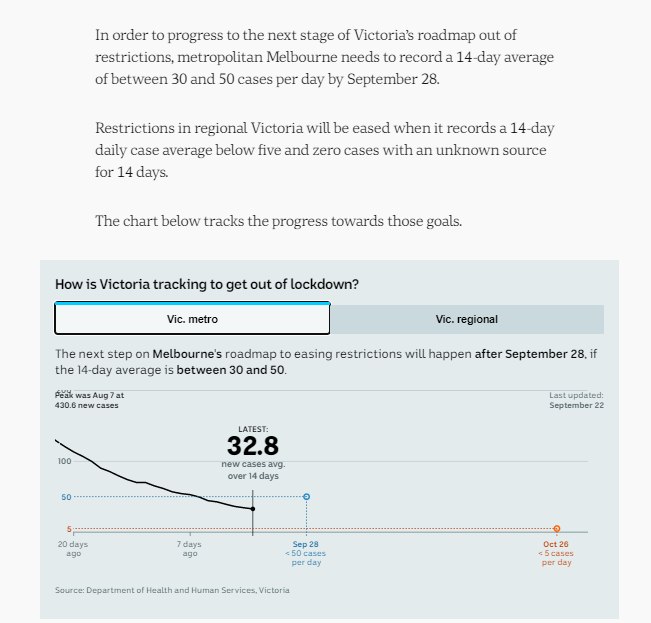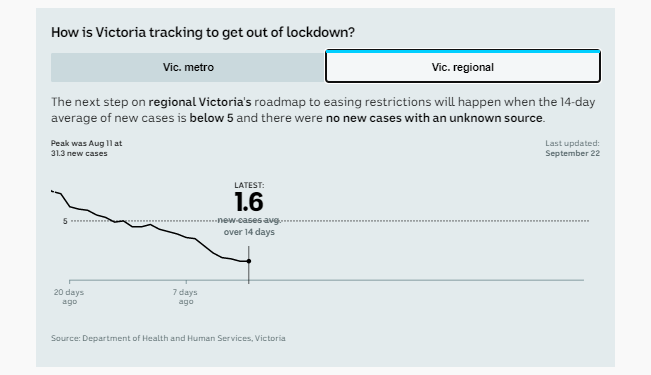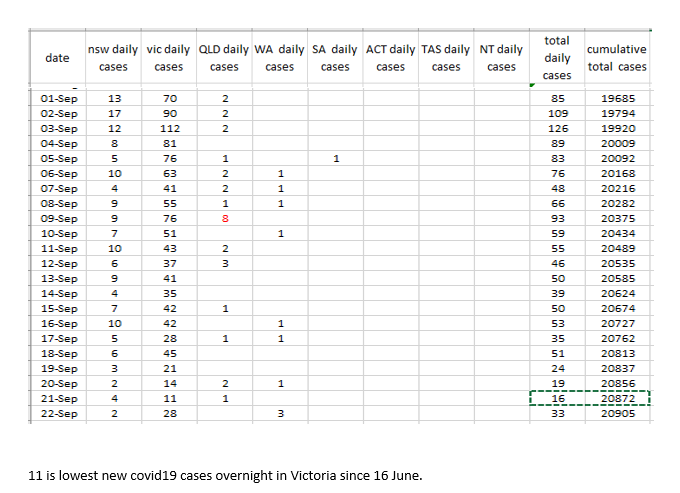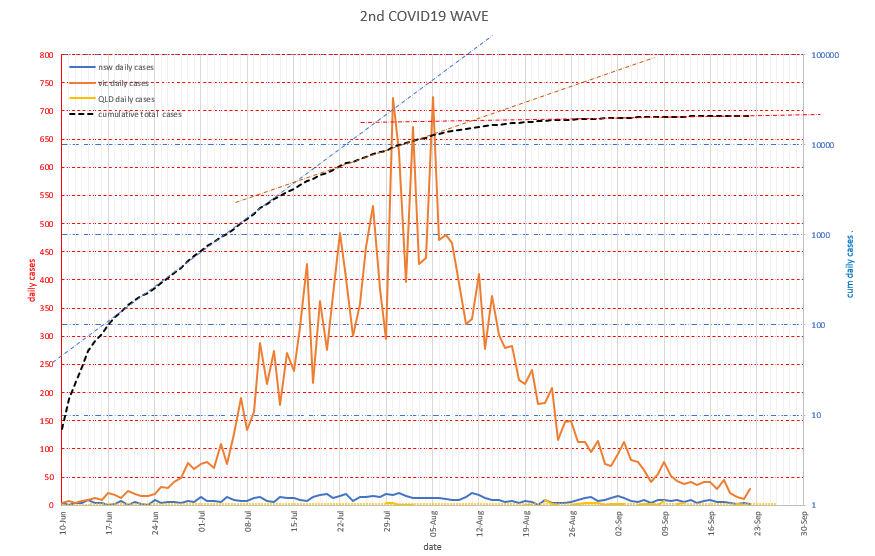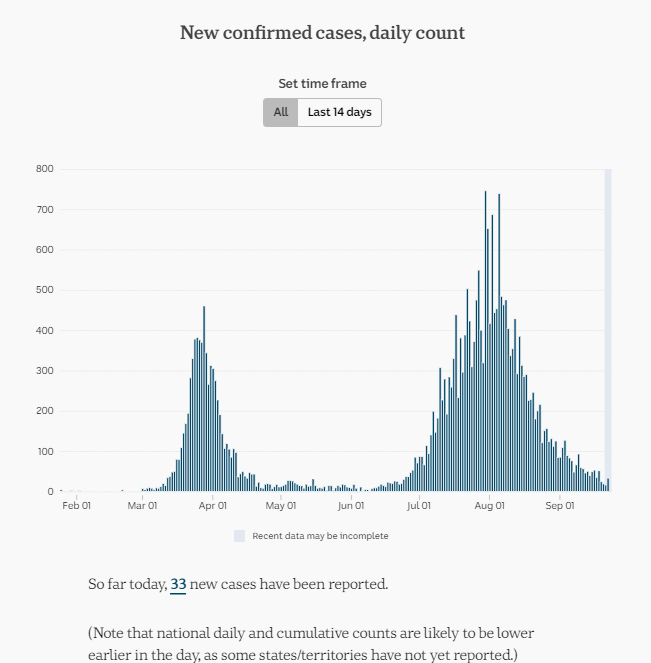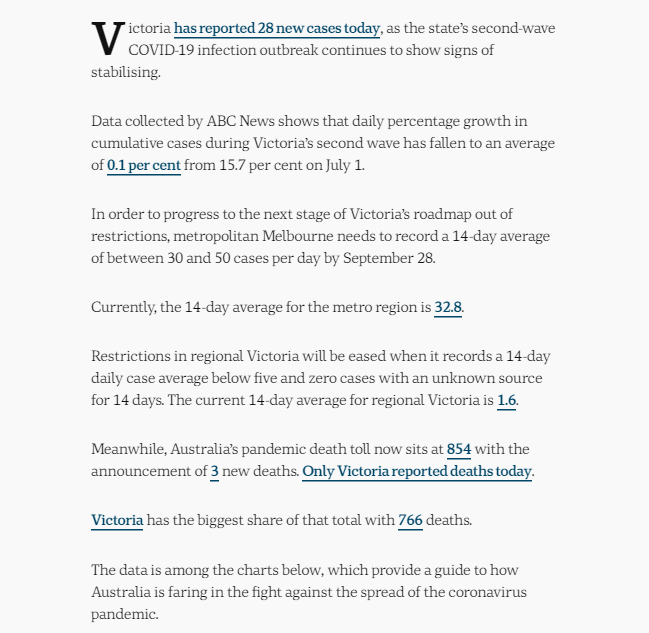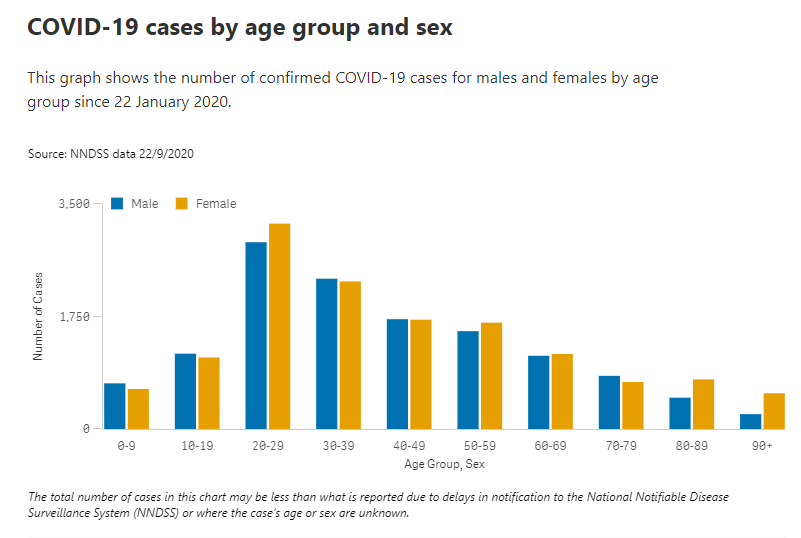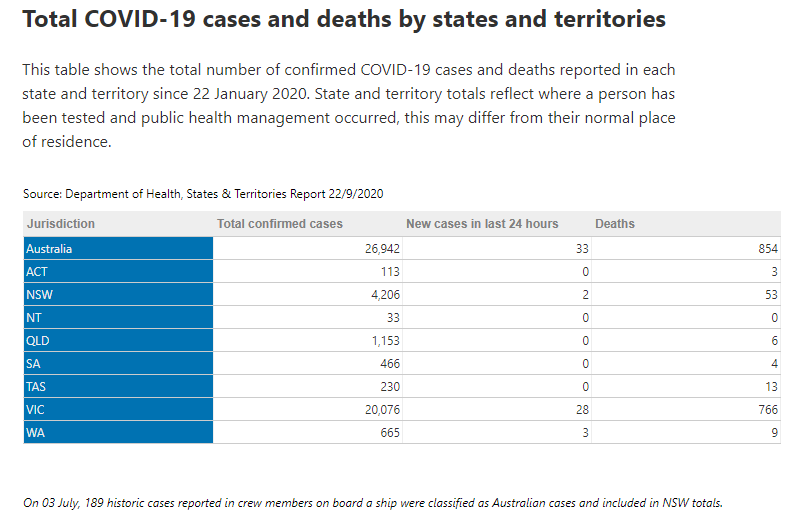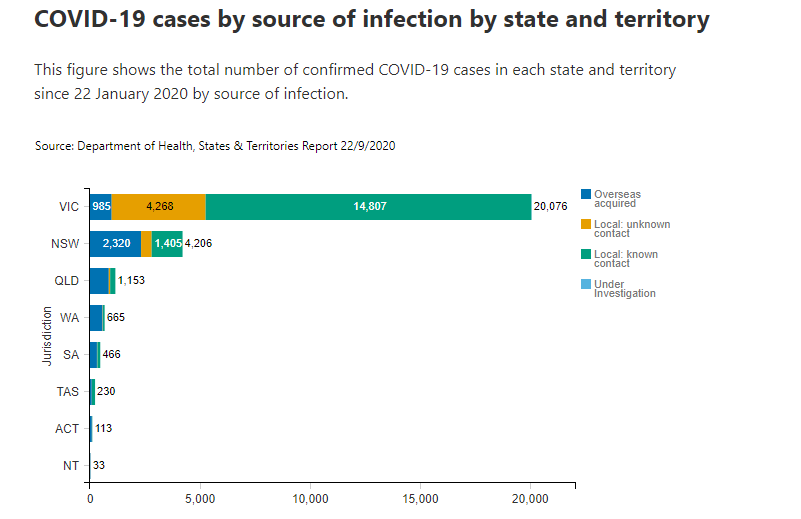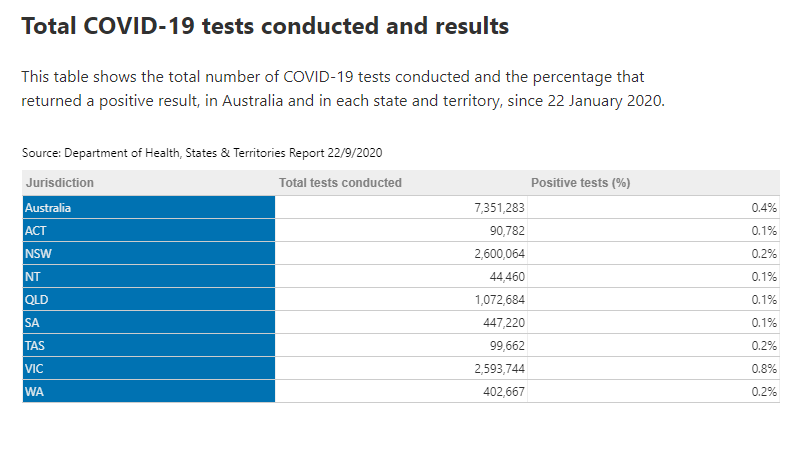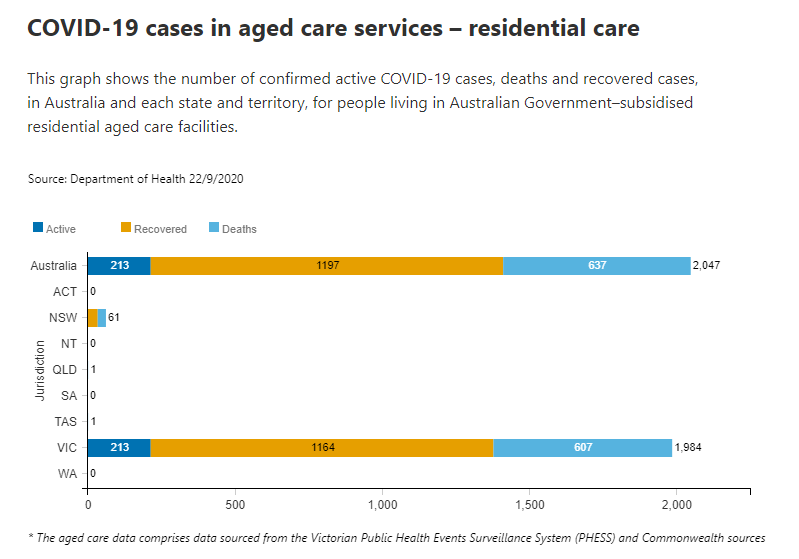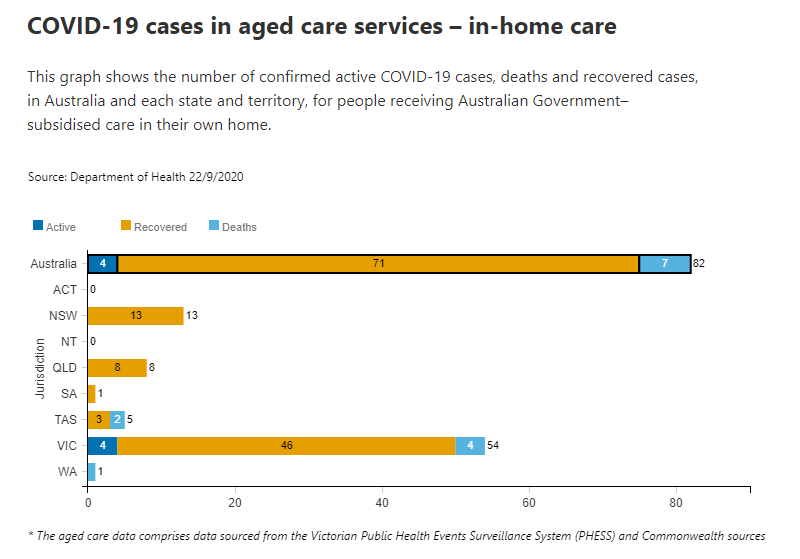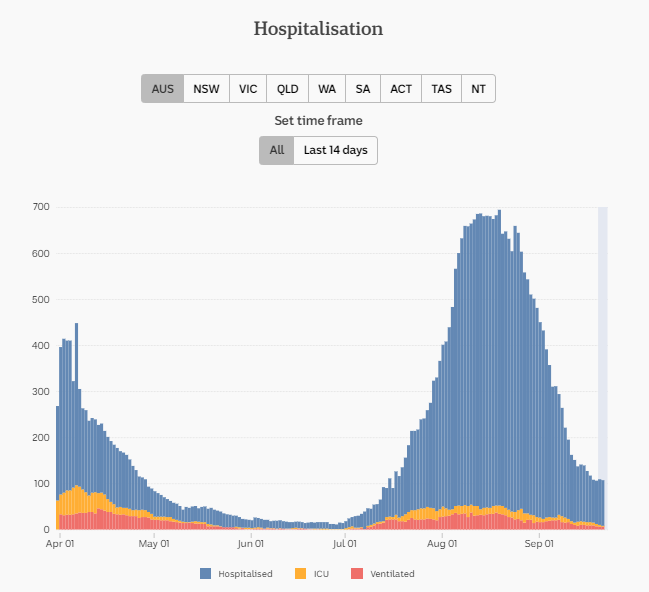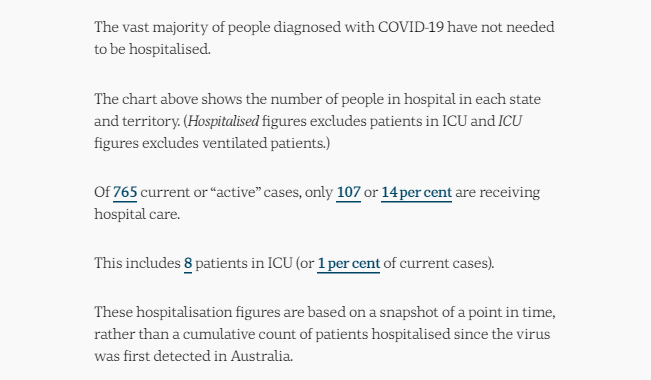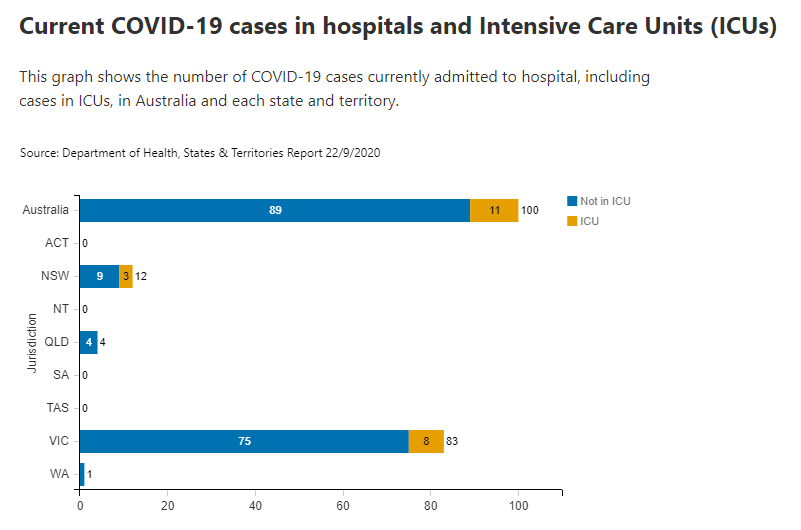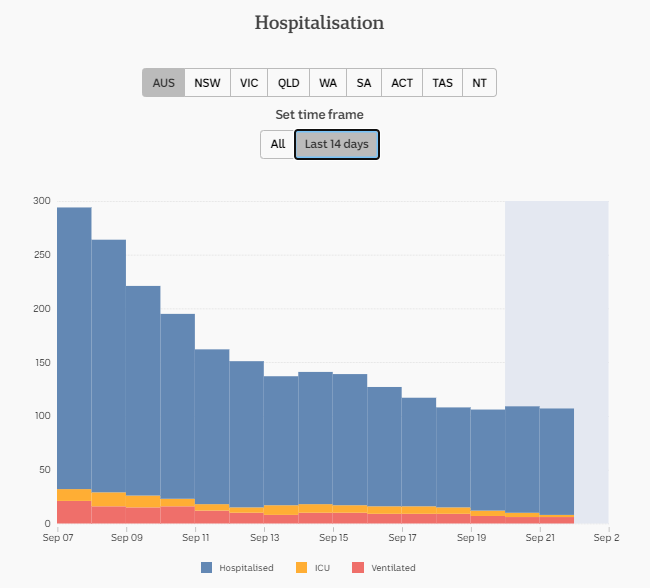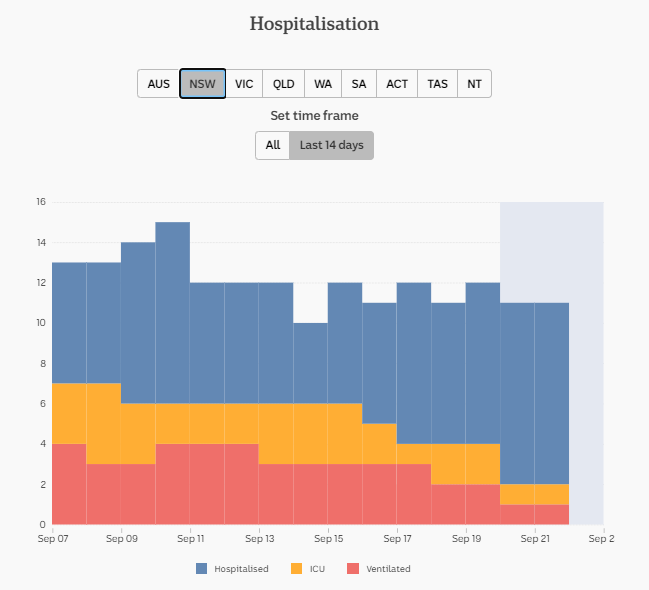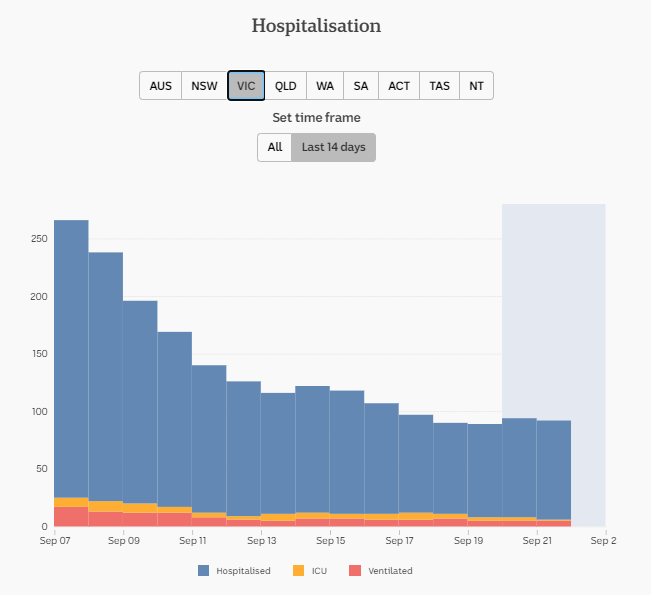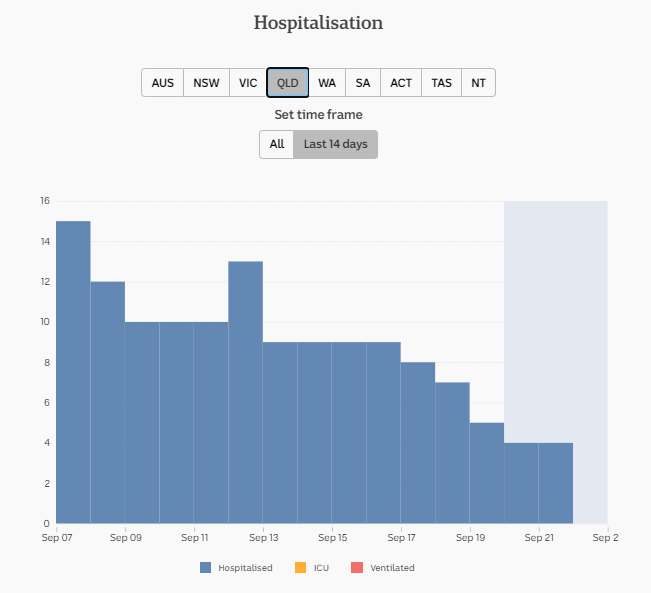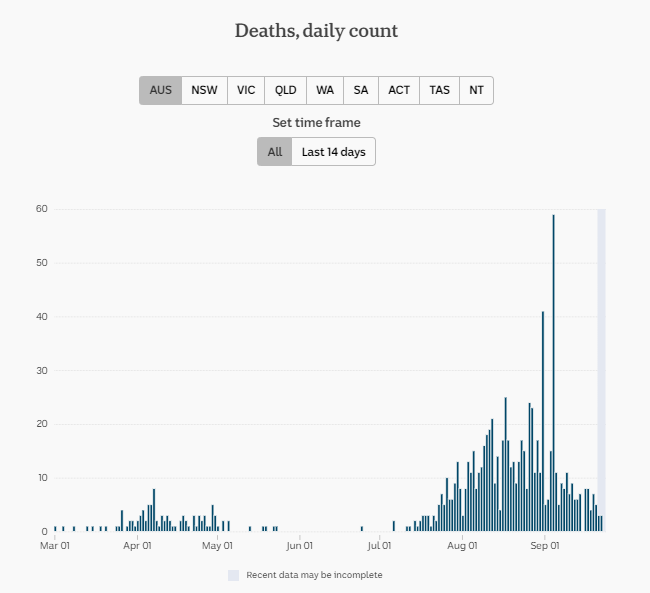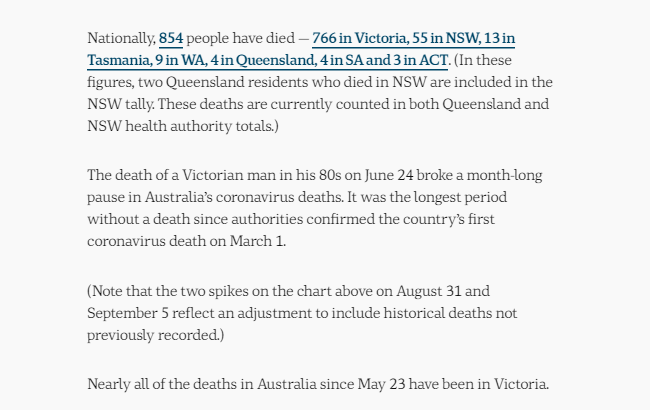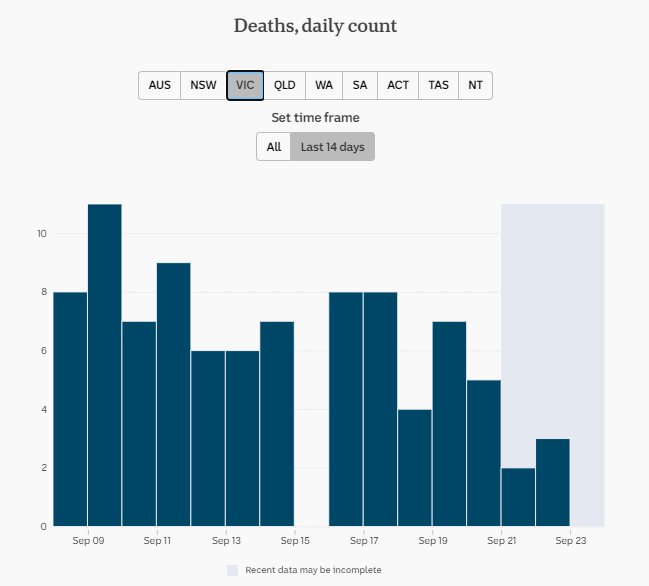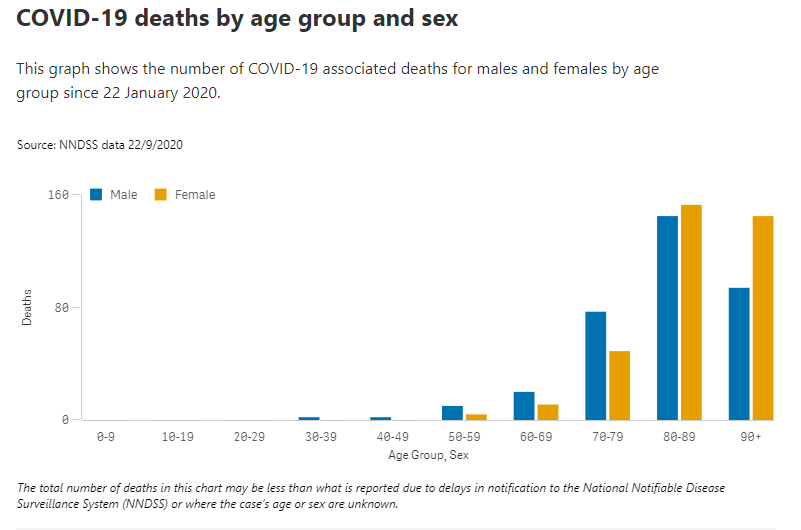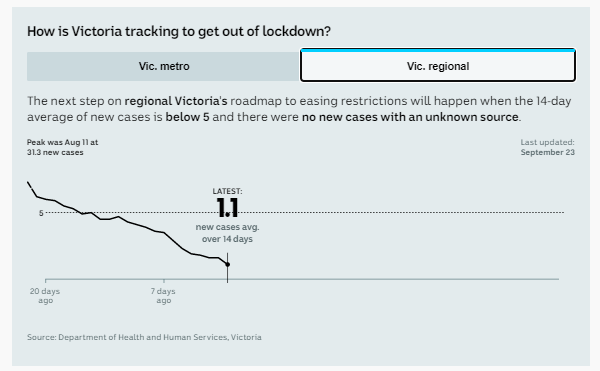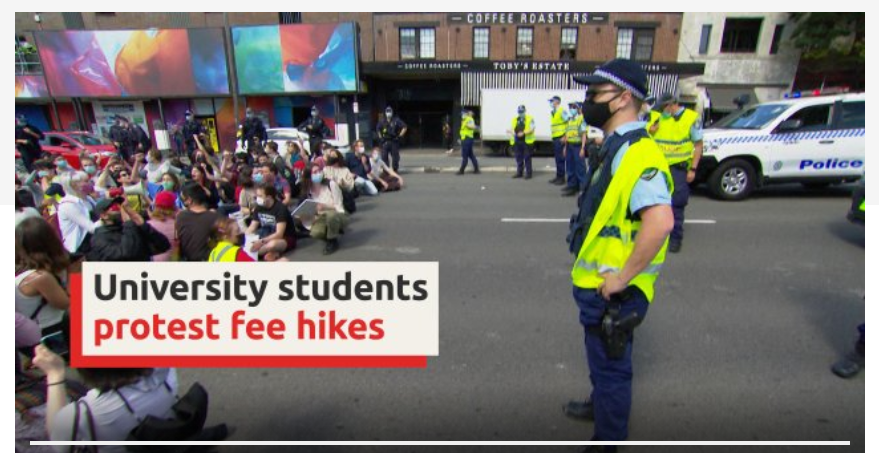21 SEPT NSW
4 new cases in NSW, 3 in hotel quarantine
NSW coronavirus cases rise by four as focus falls on infected taxi driver
NSW Covid-19 hotspots: list of Sydney and regional outbreak locations

VIC - NSW BORDER
Berejiklian considers opening New South Wales border to regional Victorians
PANDEMIC ALLOWANCE
NSW is the latest state to offer $1,500 pandemic leave payments to workers who don’t have any other accrued leave but need to isolate
NSW residents can now apply for $1,500 coronavirus disaster payment
4 new cases in NSW, 3 in hotel quarantine
https://www.msn.com/en-au/news/australia/four-new-cases-in-nsw-three-in-hotel-quarantine/ar-BB19eVT6?ocid=msedgdhpNSW has recorded four new cases of coronavirus in the past 24 hours. Three of these are returned travellers in hotel quarantine.
The fourth case is locally acquired and linked to the Concord Hospital cluster, and the person was already in isolation, Dr Kerry Chant said.
NSW Health is still working to contact people who may have been in contact with a Sydney taxi driver working for the Silver Service over the past two weeks.
https://twitter.com/NSWHealth/status/1307847737786814464
A full list of these trips is available on the NSW Health website.
There were 7,760 tests on Sunday, Dr Chant said.
NSW Premier Gladys Berejiklian has again called for borders within Australia to come down as cases continue to drop.
"Apart from the Victorian situation, which I am pleased to say is looking better and better every day, the rest of Australia has no reason to have any borders between us," Ms Berejiklian said.
She added that with the number of unknown cases of transmission dropping and states learning to keep the virus under control that states should reopen their borders.
NSW coronavirus cases rise by four as focus falls on infected taxi driver
https://www.msn.com/en-au/news/other/nsw-coronavirus-cases-rise-by-four-as-focus-falls-on-infected-taxi-driver/ar-BB19eVQV?ocid=msedgdhpNSW coronavirus contact tracers have used a "variety of mechanisms" to identify passengers who travelled with an infected taxi driver, but have been left stumped by nine of his trips.
At the weekend, health authorities revealed the Silver Service driver worked eight days in several areas around Sydney's west and south-west earlier this month.
NSW chief health officer Kerry Chant said authorities had already identified "a large number" of passengers who may have been exposed to COVID-19 in the cab from September 7 to 10, and 14 to 18.
"We have been urgently attempting to contact anyone who undertook trips with that taxi driver," Dr Chant said.
"We have managed to use a variety of different mechanisms to identify a large number of the people who shared a ride with that taxi."
NSW Health identified four new coronavirus infections in the 24 hours to 8.00pm on Sunday, three of whom were returned travellers in hotel quarantine.
The other case was linked to the Concord Hospital cluster and was already self-isolating.
Meanwhile, NSW Health has used a combination of credit card transactions, trip data and booking information to contact many of the passengers who travelled with the infected taxi driver.
However, people from nine trips have still not been traced.
"The ones that we are less conscious of are those [passengers] who might have hailed the cab driver and it's not registered in some way," Dr Chant said.
The trips are:
September 8: Liverpool TAFE to Hoxton Park Road, Cartwright (13:03-13:14)
September 8: Liverpool TAFE to Glenwari Street, Sadlier (14:01-14:11)
September 9: Liverpool TAFE to Moorebank Shopping Centre (08:08-08:15)
September 10: Liverpool to Graham Avenue, Casula (14:38-14:44)
September 10: Haddenham Street, Chipping Norton to George Street, Burwood (19:15-19:48)
September 14: Riverside Road, Chipping Norton to The Mill Hotel, Milperra (15:50-16:04)
September 15: Riverside Road, Chipping Norton to Birnie Avenue, Lidcombe (08:31-09:11)
September 15: Milperra to Riverside Road, Chipping Norton (10:14-10:25)
September 15: Birnie Avenue, Lidcombe to Riverside Road, Chipping Norton (15:22-16:07)
Dr Chant said all passengers who had travelled with the infected driver were considered close contacts and had to self-isolate for 14 days and get tested for the virus.
She said authorities were working with the taxi and ride-sharing industry about introducing a "check-in" system, similar to restaurants and other venues, to make passengers easier to trace.
"Sit in the back, sit diagonally opposite the driver and also wear a mask when you're in a cab," Dr Chant said.
NSW Covid-19 hotspots: list of Sydney and regional outbreak locations
https://www.msn.com/en-au/news/sydney/nsw-covid-19-hotspots-list-of-sydney-and-regional-outbreak-locations/ar-BB192xwD?ocid=msedgdhpList of outbreaks in NSW
If you were at the following venues on these dates you must get tested and self-isolate for 14 days, even if your test is negative.
The Crocodile Farm Hotel, Ashfield: 5.30pm to 6.30pm on Friday 4 September for at least an hour. Patrons who were there for less than an hour are considered casual contacts and must monitor for symptoms and get tested immediately if they develop
The New Shanghai Night restaurant, Ashfield: 6.30pm to 8pm on Friday 4 September for at least an hour. Patrons who were there for less than an hour are considered casual contacts and must monitor for symptoms and get tested immediately if they develop
Mama Wok, MacArthur Square, Campbelltown: 1.30pm to 2.30pm on Wednesday 9 September for a least one hour
Campbelltown Golf Club, Glen Alpine: 2pm to 4.30pm on Wednesday 16 September for a least one hour
Bannisters Pavilion Rooftop Bar & Grill, Mollymook: 12.30pm to 2.15pm on Sunday 13 September for a least one hour
Oatlands Golf Glub, Oatlands: 6.30pm to 8.45pm Friday 4 September
Albion Hotel, Parramatta: 8.15pm to 11.15pm on Saturday 5 September, guests who attended the beer garden and pavilion for at least an hour
Fitness First, Randwick: Anyone who attended between Sunday 23 August and Tuesday 1 September should monitor for symptoms and if they develop, get tested right away and self-isolate
Hyde Park Medical Centre, Sydney: Monday 24 August to Saturday 5 September. Anyone who worked at Hyde Park Medical Centre (including physiotherapy, pathology, dermatology and dental practices and pharmacy on the ground floor of the building) should get tested immediately and self-isolate until a negative result is received
Carlo’s Italian Restaurant Bar & Seafood, Ulladulla: 8pm to 9.30pm on Saturday 12 September for a least one hour
Milton Ulladulla Ex Servos Club, Ulladulla: 2pm to 6.15pm on Saturday 12 September for a least one hour
Eastern Suburbs Legion Club, Waverley: Tuesday 1 September from 6pm, Friday 4 September from 4.30pm, Saturday 5 September from 4.15pm, Sunday 6 September from 5pm, Monday 7 September from 3pm
With the growing number of cases in the area, NSW Health is asking all people who live in, or have visited, the following areas in the past two weeks to get tested if they have any symptoms of Covid-19 at all, even the mildest of symptoms such as a runny nose or scratchy throat.
Bankstown (suburb)
Blue Mountains
Cumberland local government area (LGA)
City of Sydney (East) LGA (includes central Sydney and the suburbs Surry Hills, Darlinghurst, Woolloomooloo, Potts Point, Rushcutters Bay, Elizabeth Bay, Centennial Park)
Fairfield LGA
Hunters Hill LGA
Liverpool LGA
Mt Druitt (suburb)
Parramatta LGA
Randwick LGA
Waverley LGA
Woollahra LGA
If you were at any of the following locations on these dates, monitor yourself for symptoms and self-isolate and get tested if symptoms occur.
Wray St Oyster Shed, Batemans Bay: 12pm to 1pm on Saturday 12 September
Anytime Fitness, Casula: 10.15am to 12pm on Friday 11 September
Five Stars Thaitanic, Casula: 4.20pm to 5.20pm on Saturday 12 September
Clovelly Hotel, Clovelly: 12.45pm to 1.45pm on Saturday 5 September
KFC, Concord: 1pm to 1.20pm on 6 September
Croydon Park Pharmacy, Croydon Park: 1pm to 2pm on Thursday 3 September
KFC, Emerton: 12pm to 9.30pm on Monday 7 September
Campbelltown Golf Club course, Glen Alpine: 9.30am to 2pm on Wednesday 16 September
Hunters Hill Bowling Club, Hunters Hill: 6.50pm to 9pm on Tuesday 8 September
Katoomba Sports and Aquatic Centre, Katoomba: 11.30pm to 1.40pm on Friday 4 September
Lawson oval, Lawson: 10.30am to 12.45 pm on Sunday 13 September
The Railway Hotel, Liverpool: 10.00pm to 11.30pm on Friday 4 September
Fitness First, Maroubra: 8am to 12pm on Saturday 5 September
Aldi, North Strathfield: 10am to 10.30am on Tuesday 1 September
Picnic Point Bowling Club, Panania: 3pm to 6pm on Friday 18 September
JB HIFI Penrith Plaza, Penrith: 4pm to 4.30pm on Sunday 13 September
Charles St Kitchen, Putney: 10.45am to 11.30am on Saturday 5 September
Rouse Hill Town Centre, Rouse Hill: 12.30pm to 1.30pm on Saturday 5 September
Stanhope Village Shopping Centre (including Kmart), Stanhope Gardens: 8.30am to 9.30am on Monday 7 September
Springwood Sports Club, Springwood: 1pm to 2pm on Saturday 12 September
Coles St Ives Shopping Centre, St Ives: 1pm to 2pm on Friday 28 August
Missing Spoon Cafe, Wahroonga: 4.45pm to 5.30pm on Saturday 5 September
Eastwood Netball Association, West Ryde: 12.15pm to 1.30pm on Saturday 5 September
China Doll Restaurant, Woolloomooloo: 6.30pm to 10pm on Thursday 3 September
If you travelled on any of the following public transport routes on these dates, monitor yourself for symptoms and self-isolate and get tested if symptoms occur.
Tuesday 8 September:
Bus route 316 Avoca St Randwick – Bondi Junction station, 8 September, 10.44am to 11.05am
Monday 7 September:
T1/T9 North Shore Line, between 9.17 to 9.29am from Milson’s Point to St Leonards
T1/T9 North Shore Line, between 9.53 to 10.14am from St Leonard’s to Milsons Point
Bus route 379 Bronte Beach – 11.08am to 11.24am Bondi Junction station
Bus route 316 Randwick – 10.44am to 11.05am Avoca Street, Randwick, to Bondi Junction Station
People who caught a taxi on 7, 8, 9, 10, 14, 15, 16, 17 and 18 September in the following suburbs must monitor for symptoms and if any develop immediately get tested:
Moorebank
Bankstown
Chipping Norton
Liverpool
Lidcombe
Warwick Farm
Milperra
NSW Health is seeking to identify passengers who caught a Silver Service taxi on the following times and locations. These passengers should call the NSW Health Call Centre on 9391 9000 for further advice.
Tuesday 15 September:
Riverside Road, Chipping Norton 8.31am to Birnie Ave, Lidcombe 9.11am
Milperra 10.14am to Riverside Rd, Chipping Norton 10.25am
Birnie Ave, Lidcombe 3.22pm to Riverside Rd, Chipping Norton 4.07pm
Monday 14 September:
Riverside Road, Chipping Norton 3.50pm to the Mill Hotel, Beaconsfield St Milperra 4.04pm
Thursday 10 September:
Liverpool 2.38pm to Graham Ave, Casula 2.44pm
Haddenham St, Chipping Norton 7.15pm to George St, Burwood 7.48pm
Wednesday 9 September:
Liverpool TAFE college, Bigge Street 8.08am to Moorebank Shopping centre, Stockton Ave Moorebank 8.15am
Tuesday 8 September:
Liverpool TAFE college, Bigge Street 1.03pm to Hoxton Park Road, Cartwright 1.14pm
Liverpool TAFE college, Bigge Street 2.01pm to Glenwari St, Sadlier 2.11pm

VIC - NSW BORDER
Berejiklian considers opening New South Wales border to regional Victorians
https://www.msn.com/en-au/news/australia/berejiklian-considers-opening-new-south-wales-border-to-regional-victorians/ar-BB19eZKn?ocid=msedgdhpPremier Gladys Berejiklian says her government is considering opening the New South Wales-Victoria border to regional Victorians.
There are currently 27 border checkpoints manned by New South Wales police.
“I do want to make sure we don’t have those border checkpoints for a day longer than we need to,” she said in a press conference on Monday.
he premier pointed out the Victorian situation was looking “better and better every day".
“The rest of Australia has absolutely no reason to have any borders," she said.
PANDEMIC ALLOWANCE
NSW is the latest state to offer $1,500 pandemic leave payments to workers who don’t have any other accrued leave but need to isolate
https://www.msn.com/en-au/news/world/nsw-is-the-latest-state-to-offer-1-500-pandemic-leave-payments-to-workers-who-don-t-have-any-other-accrued-leave-but-need-to-isolate/ar-BB19fqKl?ocid=msedgdhp* New South Wales is offering pandemic leave payments to workers who aren't receiving any other income support.
* Eligible workers will be able to get a one off payment of $1,500 for every 14 days they have to be in quarantine or have to self isolate.
* It comes after other states including Queensland, Victoria and South Australia introduced pandemic leave schemes.
New South Wales is offering pandemic leave payments to workers.
The state government is teaming up with the Commonwealth government to provide a one-off $1,500 payment to workers if they have been instructed to quarantine or self-isolate by NSW Health, or are caring for someone with the coronavirus. It includes people on temporary work visas.
The payment applies for each 14 day period that they have to self isolate.
However, there are some conditions for the payment: you can't already be receiving any leave entitlements, JobKeeper payments, or other income support.
To make a claim, you can either call Services Australia or fax in a claim form.
NSW Premier Gladys Berejiklian said in a statement that introducing the pandemic leave payment will help "protect the community against undetected transmission."
"Our priority is for people to get tested and follow all the health advice to stop the spread of the virus and keep the NSW economy moving," she said.
"We do not want some workers to have to choose between isolating and financially supporting themselves or their dependents."
New South Wales joins other states that have introduced a pandemic leave scheme including South Australia, Queensland, Western Australia, Victoria and the ACT.
In South Australia, the leave entitlement doesn't apply to people who have to self-isolate after returning from interstate or overseas. In August, South Australia's minister for health and wellbeing Stephen Wade said the scheme was designed to help casual workers follow the direction to self-isolate.
“The last thing we want is for any South Australian to have to make a choice between putting food on the table and protecting the community from possible infection and a potential second wave,” he said in a statement.
“Lack of leave entitlements for workers, particularly casual workers, is considered a significant risk factor in not complying with isolation requirements.”
NSW residents can now apply for $1,500 coronavirus disaster payment
https://www.msn.com/en-au/news/australia/nsw-residents-can-now-apply-for-1-500-coronavirus-disaster-payment/ar-BB19es5M?ocid=msedgdhpMore Australian workers can now apply for a coronavirus payment if they're ordered to self-isolate for 14 days.
New South Wales is the latest state to have the $1,500 pandemic leave disaster payment approved by Prime Minister Scott Morrison.
The lump sum payment is available to eligible workers unable to earn an income because they've been ordered by health authorities to self-isolate for two weeks due to close contact with an infected case - or need to care for a loved one with COVID-19.
The financial relief is available to workers aged 17 and older who don't have access to personal, care or pandemic sick leave.
Eligible workers in NSW must show they're been ordered by health authorities to self-isolate or quarantine for 14 days on or since September 17 - and prove a loss of income.
'We didn't want to declare a State of Emergency in NSW, which is what the criteria was to get the pandemic leave,' Premier Gladys Berejiklian said on Sunday.
'I wrote to the prime minister saying "please can you support us in that way" and he very gladly accepted.'
'We want to make sure, first and foremost, that those who need to isolate do so.'
Parents caring for a child under the age of 16 with coronavirus or advised to self-isolate for 14 days are also eligible.
For couples, both parties can claim the $1500 payment.
'Our first and foremost priority is to keep the community safe,' Ms Berejiklian added.
'If you have been asked to isolate whether you have been a close contact or whether you have symptoms or for any other reason, please follow those instructions and the government is here to support you.'
Victoria was the first state to introduce the payment, followed by Tasmania and most recently Western Australia, despite no community transmissions of coronavirus in months.
'If we've learned anything from our counterparts on the east coast, it is complacency is deadly, complacency can bring down the state and will undo all the hard work each and every member of the community has given,' WA Premier Mark McGowan said last week.
'I hope that Western Australians don't have to take-up this payment arrangement however knowing it is available should we need it ensures we are prepared for the worst.'
Other states are also eligible if they request access to the payment.
About $13.3 million in pandemic leave disaster payments have already been paid out to 9,000 Australians since since August 6.
